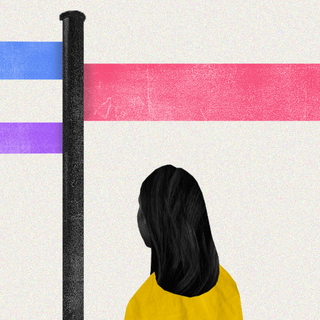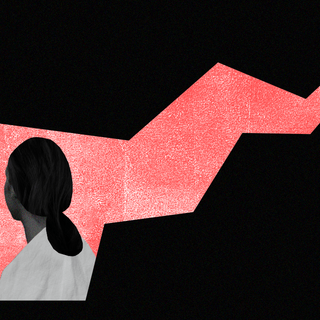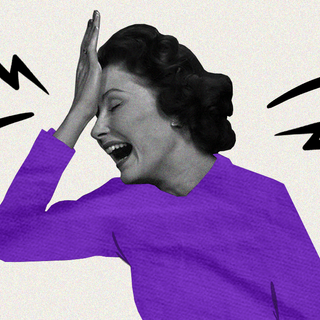
Spain Becomes First European Country to Approve Paid Menstrual Leave
An official said the move would “end the stigma, shame and silence around periods” and make it “normal to go to work in pain.”

Period pain at the workplace is an issue most divisive. How much pain is too much pain? Who has the right to recuperate from menstrual pain and for how long? Why should an individual’s competency come into question if they were to take a period leave? These are all issues belonging as much to the public as to the individual.
The cultural pot was once again peppered with warring opinions, when the Spanish Cabinet this week approved legislation to cover sick leave for workers experiencing period pain. “We are making a law that will ensure that women can live better,” Spanish Equality Minister Irene Montero told reporters after a Cabinet meeting. “It’s an end to working in pain and popping pills,” Montero added.
If passed through Spain’s parliament session later this year, Spain will be the first country in Europe to introduce a temporary sick leave, that is fully funded by the state, for workers who experience painful periods. This is a legal measure in pursuit of destigmatizing menstrual health, and reframing the way we talk about sexual and reproductive rights.
What does this policy look like in practice? According to the draft legislation, a person will have to take a doctor consultation to estimate the leave period but can stay at home for as many days as needed. Moreover, the policy guarantees the availability of menstrual products across different public institutions, such as schools and health centers. Menstrual paid leave currently enjoys very limited popularity, with only nations such as Taiwan, South Korea, Japan, Zambia, and Indonesia offering it. India has no legal infrastructure offering paid menstrual leave, but had its own moment of reckoning last year when Zomato offered their female employees this benefit.
The menstrual leave policy is a workplace equity matter widely spoken of but still misunderstood. Assertions abound with a sense of distrust about the extent of pain in the first place; with many opposing menstrual leave arguing that period pain is at best a slight discomfort. This is a myth debunked in science and in culture. Painful periods, also known as dysmenorrhea, are mild for some and debilitating for others; common among 71% of adolescents and women under 25 years globally. Much to the disappointment of the policy’s detractors, period-related symptoms can include nausea, cramps, headaches, diarrhea, and fever — casting a wide net for pain.
For anyone still unsure of period pain being a genuine health issue, here’s an account by Pallavi Prasad, who wrote about extreme pain for The Swaddle: “When I get my period, every inch of my upper body hurts as if someone has bruised me with a bat. Every inch of my lower body is numb. I bleed excessively, having to wear two pads simultaneously at all points. I can’t sit, stand up straight, lie down, walk, eat or sometimes even turn in bed… Besides these symptoms, which last up to 48 hours, cramps come in waves so strong that I see blinding white light.”
Related on The Swaddle:
Period Irregularities and Stress Levels Have Risen Together Since 2020: Study
Menstrual symptoms then shape much of people’s negotiation with the public order. According to a 2019 study based in the Netherlands, one in five young women (20%) reported missing school or university due to period pain. Two in five (41%) said pain affected their concentration or performance in class. Overall, women lost nine days of annual productivity due to menstrual pain.
The premise is thus set with the fact that menstrual symptoms cause tangible physical and emotional discomfort — disrupting work and other things, just like any health condition could.
But our understanding is colored by a capitalist culture that has enlisted “productivity” as its trooper, and gender bias that thrives on stigmatizing reproductive health. The conversation around menstrual policy is intrinsically linked to sexism and discrimination in the workplace. Arguably, if there is a policy to grant workers several leaves on account of period pain (which is dismissed in corporate cultural conversations), there are high chances employers would be dissuaded from hiring them in the first place. Or taking a sick leave from work may be misconstrued as “absenteeism,” triggering a vicious cycle of lost opportunities and subsequently fair pay. Even if there is a policy to take paid sick leaves, there are reports of people being hesitant to cite periods as a reason for fears of being perceived as “weak” or “incompetent.” It is no wonder a critique goes along the lines of “period leaves impact women’s access to the labor market.”
The arguments teem with sexism and a culture absent of empathy and respect for personhood. At one level, it speaks to the way we see pain as an emotion in its entirety. We know the capitalist economy separates the person from the “body”; training bodies at a mass scale at the expense of the person’s well-being. There is no room for vulnerability — much less pain and sickness — in this system; it is no wonder that sick leave policies remain a matter of constant negotiation still. In that sense, it is the labor market in itself that warrants a critique of its mechanized, inhumane ways of functioning.
On another level, any conversation about menstruation is also a conversation about social taboos. It is a cultural refrain that menstruation is “no pain at all” or must be borne with strength for it defines womanhood. Oppressive gender binaries notwithstanding, systemic sexism prevents any constructive conversation. When stripped of all spurious claims by companies, the fact remains that period pain is a health problem that deserves intervention and empathy.
This requires radically reimagining how we view health, reproductive and sexual rights, and workplace culture. But the motivation must be birthed within the system itself, instead of expecting people to advocate for rights that are fundamentally linked to their personhood.
Spain’s model ensures that such decisions pertaining to autonomy and personhood aren’t left to the whims of private workplaces, but is a welfare policy that covers everyone irrespective of where they work, thus also bringing exclusionary company policies also into line.
Saumya Kalia is an Associate Editor at The Swaddle. Her journalism and writing explore issues of social justice, digital sub-cultures, media ecosystem, literature, and memory as they cut across socio-cultural periods. You can reach her at @Saumya_Kalia.
Related


Period Irregularities and Stress Levels Have Risen Together Since 2020: Study
